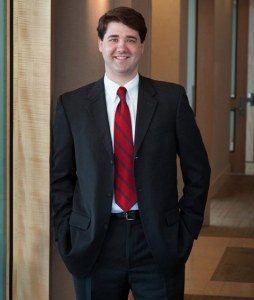Application of the FDCPA is limited by the 11th Circuit
Recently, in Davidson v. Capital One Bank (USA), N.A., 2015 U.S. App. LEXIS 14714 (11th Cir. Aug. 21, 2015), the 11th Circuit held that banks do not qualify as “debt collectors” under the Federal Debt Collection Practices Act (“FDCPA”) when attempting to collect a debt, which was in default at the time it was acquired by the bank.
In 2007, HSBC Bank filed suit in state court against Keith Davidson to collect on a credit card account belonging to Davidson. A settlement agreement was reached in which Davidson agreed to pay HSBC $500.00. However, Davidson failed to pay the $500.00 and the state court entered a judgment against Davidson in that amount.
In May of 2012, Capital One Bank acquired certain credit card accounts from HSBC, including the delinquent account belonging to Davidson. In August of 2012, Capital One filed suit against Davidson in state court to collect on the same credit card account subject to the prior state court action. In July of 2013, Davidson filed suit against Capital One in the United States District Court for the Northern District of Georgia claiming that Capital One had violated the FDCPA. An amended complaint was later filed by Davidson and Capital One filed a motion to dismiss arguing that the amended complaint failed to plausibly allege that Capital One was a “debt collector” for the purposes of the FDCPA. The District Court found that Capital One was not considered a “debt collector” and dismissed Davidson’s amended complaint. Davidson appealed.
On appeal, the 11th Circuit stated that the section of the FDCPA in question, §1692(e), applies only to debt collectors. The FDCPA defines “debt collector” as “[1] any person who uses any instrumentality of interstate commerce or the mails in any business the principal purpose of which is the collection of any debts, or [2] who regularly collects or attempts to collect, directly or indirectly, debts owed or due or asserted to be owed or due another.” Unlike debt collectors, “creditors” are not subject to the FDCPA. The FDCPA defines a “creditor” as “any person who offers or extends credit creating a debt or to whom a debt is owed.” However, “any person to the extent he receives an assignment or transfer of a debt in default solely for the purpose of facilitating collection of such debt for another” is not considered a creditor.
Davidson argued on appeal that Capital One qualifies as a debt collector because Capital One acquired his debt after default; thereby excluding Capital One from being considered a creditor. However, the 11th Circuit rejected Davidson’s argument. The 11th Circuit held that there was no ambiguity in the definition of a “debt collector” and refused to accept Davidson’s definition of “debt collector”, which added the word “originally” into the phrase collecting “debts originally owed or due or asserted to be originally owed or due another.” In doing this, the 11th Circuit stated that it was not in the business of rewriting statutes and applied strict construction to the FDCPA statutory provision.
Additionally, the 11th Circuit found that the amended complaint failed to plausible allege that Capital One’s principle purpose of its business was debt collection. Similarly, the 11th Circuit also found that the amended complaint failed to plausibly allege that Capital One regularly collected or attempted to collect debts owed or due to another and Capital One’s collection efforts relate only to debts owed to it and not to debts of another.
–Matthew A. Barley
